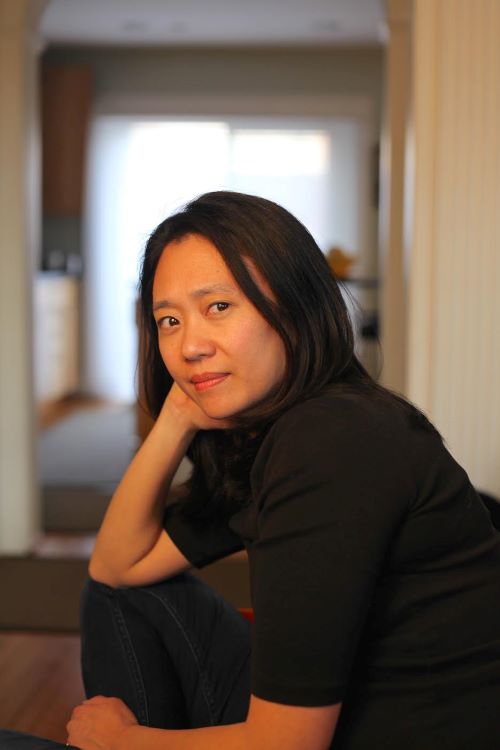As I do nearly every night,I will sweep the floorwhen my mother dies.I will miss her andnot call herand little will change,like the not calling. Every nightI think of her and don’t callbecause the thinking is soothingand the calling is not. I sweep the floorand think about what I’ve been askedto write, an essay on war. _________“Most of us have not been to war,” I begin,“yet certain photographsmake us rememberwhat never happened to us.Either our imaginations are markedor no longer our own.”Dust dwelling in corners deformswhat I think of as an edge. There is the wall,and there, alongside it, trails the dust,stubborn, unrelenting. There—a boy asleep on the beach,a girl turned into flame.In my mind I am at warwith images, my mother brazenlyunsmiling in a photographuntil the end of time. Her mouth’s darkred, a terrible ellipsis. Now, awedby the body in time, she dons a smilerinsed out like an absence.I hate poetry. I hate art. One broad sweep,and still the house will not be cleaned. My floors.My nighttime habits. I writewithout experience: “Dying is a factfew of us can bear.” _________My mother is dying and we pretendnothing will happen. Thereis the onslaught. Tiny particlesof my children proliferate . . .our breakfast crumbs, my grief,the nothing that scatters across the room,that won’t be swept away. I tryto not burn the toast. I try to not bendto abstraction, this pagetorn out of nothing.What did you pluck out of the tree?What did you put in your mouth?My mother, who is dying,tells me to lock the doors and windows.Winter is coming. Every houseis a target. I livein a house with a writing desk.As a child, H’s mother,barely escaping the war,left everthing behind—a well-stockedkitchen, the first books she read in English.She held onto hersmall self, her only baggage,covetously, terrifiedin the backseat of a stranger’s carbarreling toward a border.Now in Americamy mother is dying. She is scared of deer,snakes, caterpillars, rats, and somemen. And windows and doors.I no longer know where she puts the broom,if she sweeps the house oranswers the phone. _________Who made this mess?I write,“The mother of all warsis inside ourselves: I cannot decidewhether to speak or stay silent, orI speak only ineffectual words,the crackling sounds that trees makeon a windy night?” The season changes; againnothing is coming out of my mouth.I read a poem about a familyphotograph, the son long gone,the mother years into a secondlanguage, second life. Her hair is a black wavein a black ocean. I write,“Why do we not think of thisas an image of war?” The daughterslook nothing alike.I am leaving the door open,the windows unlatched.I sweep the floor as my children sleep,I sweep out the leavesthey’ve carried into the house, every cornerthe dust, the dust, the dust.My mother was born in a war,outlasted wars I studiedand wars I never heard of.Never saw. My whole life.
An Essay on War
Feature Date
- March 11, 2023
Series
Selected By
Share This Poem
Print This Poem
“An Essay on War & The Death of Socrates” originally appeared in The Georgia Review, Volume LXXV, No. 2 (Summer 2021), © 2021 by The University of Georgia / © 2021 by Jennifer Chang.
Reprinted by permission of Jennifer Chang and The Georgia Review.

Jennifer Chang is the author of The History of Anonymity and Some Say the Lark, which received the William Carlos Williams Award from the Poetry Society of America. Her poems and essays have appeared in numerous publications, including American Poetry Review, Best American Poetry 2012 and 2022, The Los Angeles Review of Books, The New Yorker, The New York Times, Poetry, and the Yale Review. She co-chairs the advisory board of Kundiman, serves as poetry editor of New England Review, and teaches at the University of Texas in Austin. Her third book of poems, An Authentic Life, is forthcoming from Copper Canyon Press in 2024.
Poetry Daily Depends on You
With your support, we make reading the best contemporary poetry a treasured daily experience. Consider a contribution today.




